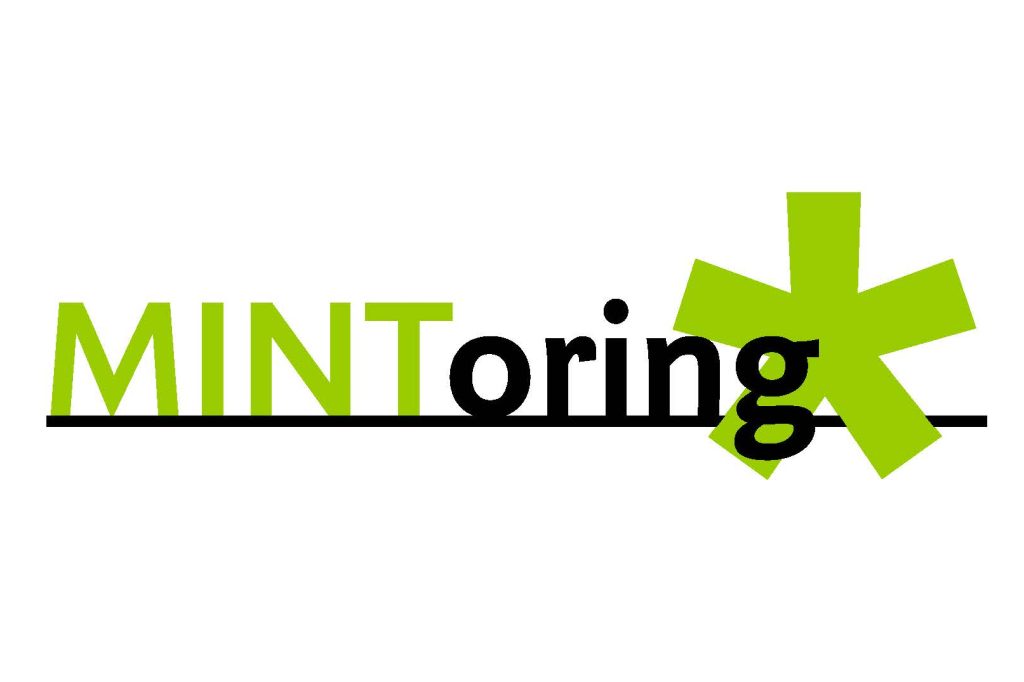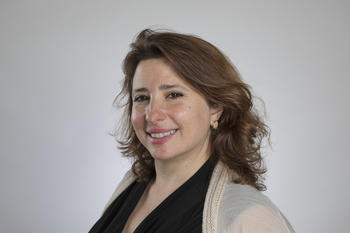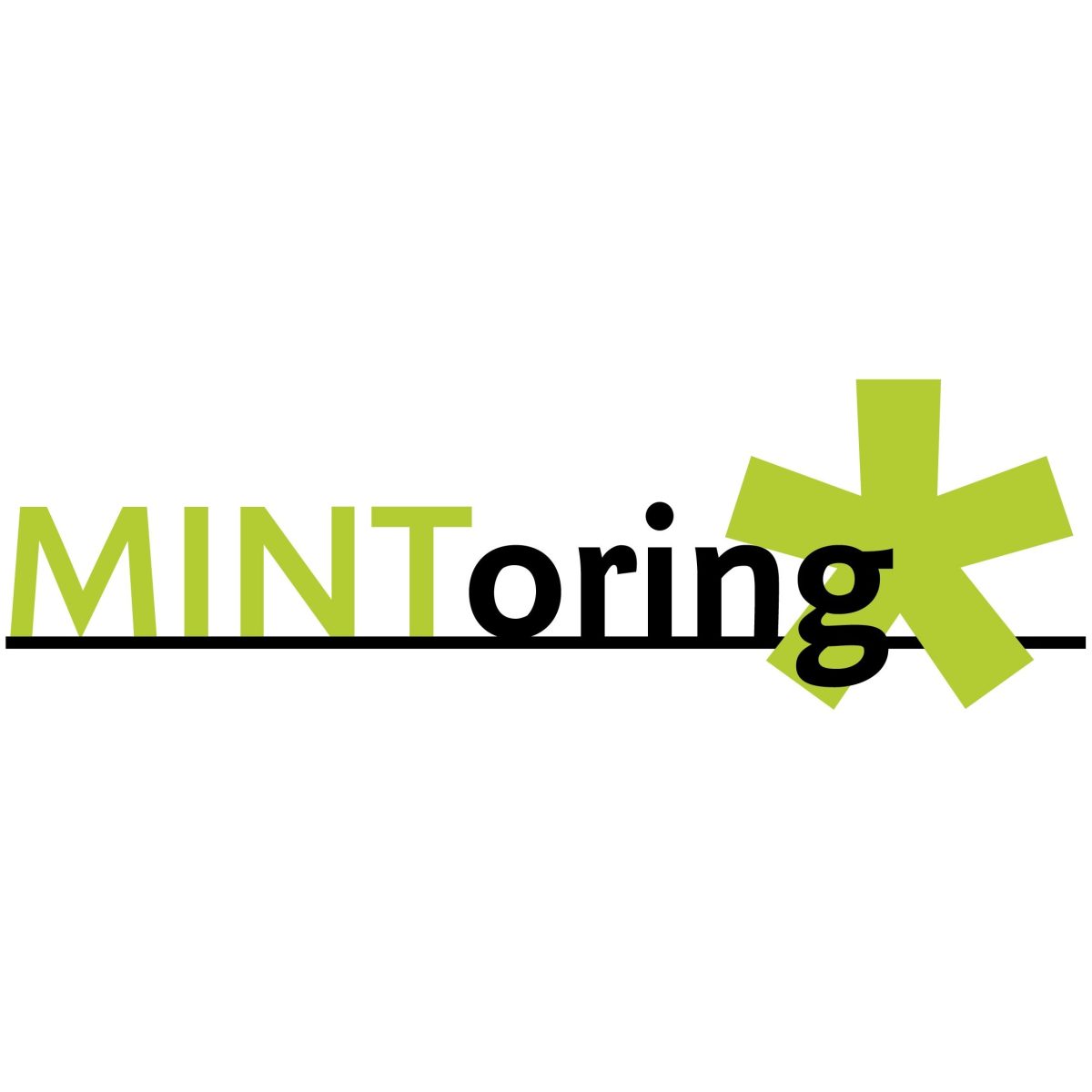
Interview with Dr. Nelly Mouawad, MINToring coordinator at FU | Part 1 – Hundreds of female high school students are on campus today on the annual Girls’Day, which is organised by the MINToring team. MINToring aims to motivate women to study STEM subjects, create a safe space, and offer them role models. Dr. Nelly Mouawad reflects upon challenges in the academic system for women and the future of this outreach program. | Part 2
Could you please introduce yourself briefly by telling us who you are and what your role is at Freie Universität?

“I am Nelly Mouawad, and today, my answer is different from how I saw myself some years ago. Today I think of myself as a scientist and an advocate for education and for women in science. I come from a very tiny place in Lebanon which is full of contradictions and complexities. I left that place, toured the world and today I feel as a citizen of the world, not belonging to just one place. Transcending that culture and being able to belong to the world generally has to do with the fact that I had the opportunity to study sciences. Education was my ticket to the world, and science (in my case, physics and astronomy) was my way to free my mind and challenge the narratives I grew up with. That’s why I am keen on science education and outreach, and that is my motivation to be the coordinator of the MINToring program, an outreach program for STEM (science, technology, engineering, and mathematics). This program is directed at school girls and high school students who define themselves as female from grades 7 to 13. It is unique in multiple ways.”
You’ve been at FU for exactly one year now. Your first day last year was on Girls’Day, an event with hundreds of girls on campus. Girls’Day is also happening today. What do you take reason after one year and two Girls’Days?
“Last year precisely on Girls’Day, I went to sign my contract in the morning and was immediately on the job afterwards. I saw the flood of female high school students filling up the departments, the lecture halls, and the seminar rooms. Even though I did my PhD in Germany I had not encountered such a big-scale event with hundreds of young female students walking on campus. It felt like the university is a place for everybody and I think this is what it should be. That’s why outreach is important, too, because we bring people to the university which becomes a space not exclusively for academics and intellectuals. I believe more programs like this are needed to get us where we need to be in terms of representation of women in sciences. I think that Girls’Day is great, but by itself, it’s not enough to keep the drive, the attraction for female students to sciences.
A very positive experience of the MINToring program is to work with a team of inspiring bachelor students, colleagues, scientists and non-scientists who are very motivated to advocate for women in science. I appreciate most seeing the excitement of the students who come to our events, our workshops, the internships, or Girls’Day –than, I know that we are making a difference.”
You have worked for over a decade as an assistant professor in physics and astronomy in Lebanon and the USA. You are familiar with the scientific system, the university culture and therefore know the difficulties and pitfalls for women in science. Why are outreach programs like the MINToring program still important and necessary?
“When I returned to my country, Lebanon, after having worked and studied in the USA, Germany and in France for 10 years, I became the first female astrophysicist professor in the country, and I remained the only one at my university for 10 years. That attracted a lot of female students to the field, and I was naturally drawn to outreach. However, outreach was not the main part of my job specification as a professor, but I dedicated a large part of my time to that. I wanted to support the students’ passions and I wanted to make a difference to my community by sharing my knowledge and experiences.
Now, talking in general about the importance of outreach programs, the first thing I want to say is that scientific research is highly specialized and complex and can be understood only by a relatively small group of people. However, we use science and technology to advance and develop society. If you want science to serve its purpose, it must be shared and communicated so that it can reach the people. Another reason is that, especially in a country like Germany, where education is mostly public, and research is funded mostly publicly, I feel it’s only fair that society gets something back. We need the exchange because we would otherwise become an isolated ecosystem, like the classic image of the ivory tower.
Finally, I think, that outreach is important because we need to inspire the next generation. We need to nurture it and to maintain it. Especially today, where there is an increased need for more scientists and technical professionals. In terms of MINToring, it is a unique program because it is multidisciplinary with physics, computer sciences and geosciences, and it is directed towards female students who are a huge untapped potential in our society. We need a greater women’s participation in science and in leading roles in particular where they mostly lack behind. That will contribute to the advancement of our society, the research and technology, and our economy as the World Economic Forum stated in their recent Gender Gap Report 2023. I see gender equality as a necessity and a priority, and not as a luxury.”
What is your motivation to work as a coordinator of the MINToring program especially considering your scientific background? How can we picture your everyday working life?
“There are many different aspects and facets to the role as MINToring coordinator. Until recently, I shared the role and tasks with my colleague Dr. Janina Richter, who was in charge – among other things – of event organization and project management, while I was mostly busy with project development, enhancing visibility, building new cooperations, and strategy. Now, team leadership, communication and networking have become also my responsibility.
The MINToring team is small, currently, it is myself and three student assistants working on the program. What I like most about how we operate is that our female student assistants are empowered to contribute their ideas, develop and execute their own workshops and events which allows them to actively participate in shaping the academic system. I feel it’s like a small start-up without the usual hierarchy in academia. There is value to what we do, and I am gaining an enriching new experience. What motivates me the most is the thought that I am having an impact on people’s lives. At the same time, I also keep on exploring possibilities for a continuation of MINToring; something that fits the university’s and the departments’ needs and their outreach strategy. There is an ever-increasing need for outreach to attract more students as the enrolment numbers are going down.”
You said that MINToring is a unique program because it targets female students and encourages them to pursue STEM subjects. What are the main goals of the program and could you specify what makes it so special?
“What makes MINToring special is the unique opportunity for female high-school students at secondary schools to have a continuous availability for a variety of extracurricular events within their reach throughout the year. Any student who has curiosity for science or wishes to do more than her school is offering in terms of physics, computer sciences or geosciences is given the chance to be inspired and guided into sciences. MINToring is offering female students a space to explore their scientific interests, where they say they feel safe to make mistakes, to say something inaccurate or not clever enough outside the competitive school environment and, very importantly, to connect with role models. These aspects make it, in particular, unique.
At the same time, we’re offering an interdisciplinary program so the students can have a broad perspective on modern scientific topics. They can do physics and computer sciences together, as well as geosciences, and there is a lot of interchangeability and overlap between these subfields. Of course, scientists and research groups, and anyone who gives their time and dedication to our events are essential to the success of the program. We are grateful and appreciative of each one of them.”
The interview was conducted by Merle Büter, gender equality specialist in the Chief Gender Equality Office at Freie Universität Berlin.
A short version of the article was published in campus.leben on april 25th 2024 under the title “Wir brauchen eine stärkere Teilhabe von Frauen in der Wissenschaft”.
Part 2: „It felt like the university is a place for everybody“
